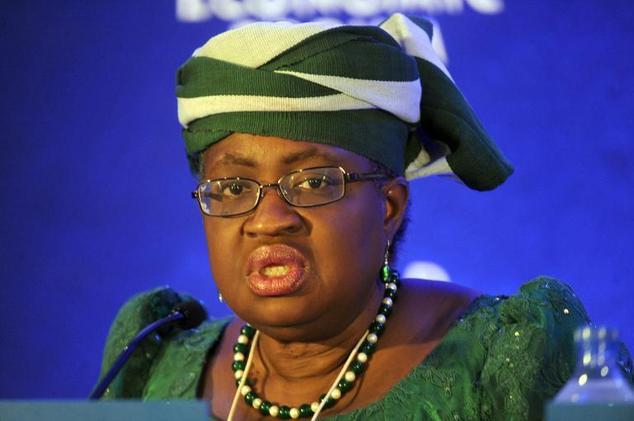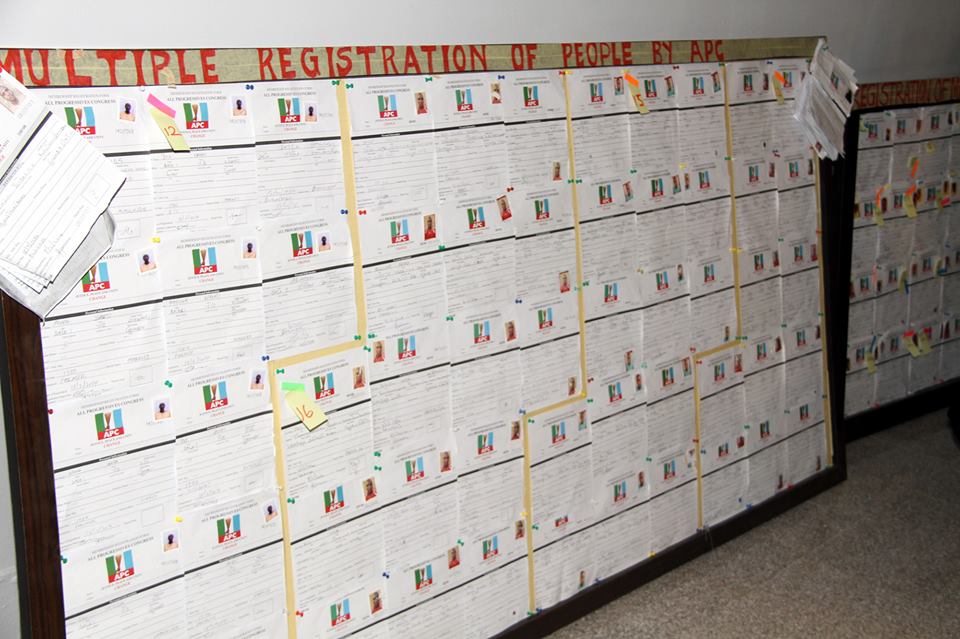The ministry of finance on Wednesday issued a statement to clarify recent media reports on the alleged mismanagement of Excess Crude Account savings, listing a long list of reasons why the savings is not more than the current figure.
Ex-President Olusegun Obasanjo recently complained about the country’s low ECA savings, saying it was $35 billion when he left office in May 2011, but the account “has now been depleted”.
But responding on Wednesday, the ministry observed that ECA savings would now have been higher but for the fact that a number of governors, against strong professional advice, actively kicked against continuous building up of the ECA and, indeed, pushed for its sharing.
It also denied that Jonathan’s administration had squandered savings made to the account.
Advertisement
“This statement is issued to, once again, clarify the facts of the recent history and status of Nigeria’s Excess Crude Account and foreign reserves, an issue that is, in this election season, gaining more headline attention,” it said.
“Because of the importance of this key economic indicator, we believe it is important to restate the true position in the interest of the Nigerian public as well as local and international investors.
“First, it is absolutely not true that the administration of President Goodluck Jonathan has squandered the nation’s reserves. The facts are clear and indisputable. At the end of May 2007, Nigeria’s gross reserves stood at $43.13 billion – comprising the CBN’s external reserves of $31.5 billion, $9.43 billion in the Excess Crude Account, and $2.18 billion in federal government’s savings. These figures can be independently verified from the CBN’s records. The figure of $67 billion cited in some recent commentary is therefore factually incorrect.
Advertisement
“Second, it is a misconception to think that reserves are immutable or cast in stone. The reality is that since May 2007, the reserves have fluctuated in line with developments in the international oil market, rising from $43.13 billion at that time, peaking at $62 billion in September 2008 during the Yar’adua/Jonathan Administration when oil prices reached a peak of $147 per barrel, and falling subsequently to a low of $31.7 billion in September 2011. This fall in reserves was largely a result of the vicissitudes of the global economy and oil market which caused the CBN to intervene, using some of the reserves, to defend the value of the naira.
“Third, the Excess Crude savings, which it should be noted is a component of the reserves, was largely used to cushion the economy at the height of the global financial crisis in 2008-2009. As a result, Nigeria was one of the few countries in the world that did not seek assistance from international financial institutions at that time. The fiscal stimulus used to shore up the economy during that period was shared by all three tiers of government. Similarly, savings in the ECA were also used to pay for fuel subsidies for the entire nation and that sharing continued after the crisis ended. Starting in 2012, such payments have been published each time they are made.
“Fourth, It is true the savings in the ECA would now have been higher but for the fact that a number of governors, against strong professional advice, actively kicked against continuous building up of the ECA and, indeed, pushed for its sharing. It is on record that States even took the Federal Government to court on this matter, and the case is still pending at the Supreme Court.”
It added that the Jonathan administration built the first ever Sovereign Wealth Fund for the nation, in which savings were being made for future generations of Nigerians and important infrastructure investments are being supported.
Advertisement
“It is also a matter of public knowledge that the Fund would have generated more savings and investments if the same sort of opposition that blocked savings in the ECA had also not been at work,” it said.
“Furthermore, by common agreement between the FGN and State Governors, in 2009, an amount of about $5.5 billion was drawn from the ECA and used for investment in Independent power projects. Today, various state governments are shareholders in the projects and hold share certificates confirming their stake in the projects.
“On the use of reserves, it is not correct to say that the nation’s external reserves were dipped into or misapplied by the administration. Anyone familiar with foreign reserves management will be aware that the federal government cannot dip its hands into the external reserves. Like in other countries, the management of external reserves is one of the statutory mandates of the Central Bank of Nigeria (CBN).
“Section 2 sub-section (c) of the CBN Act (2007) states that the Bank shall “maintain external reserves to safeguard the international value of the legal tender” – in other words, to defend the value of the Naira. No President since the democratic dispensation has contravened this Act.
Advertisement
“The reserves are also used to settle both public and private sector foreign currency obligations, including the importation of goods such as equipment for power sector. Whenever an Agency of Government or a private individual/company needs to make a payment in foreign currency (e.g. payment of goods and services, settlement of external debt, etc) it must provide the naira equivalent to the CBN in exchange for the required foreign currency.
“From the above, it is clear that Nigeria’s reserves during the period were not squandered but used appropriately in the course of normal transactions required for the development of the Nigerian economy.”
Advertisement
5 comments







Thank you madam for your detailed and honest explanations.
Please whoever know the man called OBJ should ask him to act as an elder!
Why did the federal government not put away enough savings from its 52% share of the federation account? Did the nation get value for all the monies that were spent? The Jonathan/Okonjo-Iweala budgets that are typically 70%-75% consumption and 25%-30% investment, and our high tax evasion and waivers are at the root of our lack of national buffers to shield us from falling oil prices.
Professional clarification from the Ministry of Finance. Every well meaning Nigerian, indeed every Nigerian, should join hands to build Nigeria. No one should elevate personal frustrations to cheeky, destructive levels. You cannot be an elder stateman without first being a statesman. Statesmen build nations they don’t destroy them.
Vodoo economic analyses designed to cover the sins of the locusts. No one is impressed save the wolves who are benefiting. Visionless leader like you brought us to this state of hopelessness. Look around, is there any corresponding development with the staggering amount of money you people have squandered? We dont need any degree from Havard or London School of Economics before we can see through the web of lies you called defence. Obj may not be a saint, but he surely knows what he is talking about. The economy under your imperial watch is a curse to many-military pensioners who you are delibrately dispatching to the great beyond on daily basis, the unemployed who are living in a perpetual state of hopelessness and even those who are on regular salaries. All of us are united in our miseries. There must be change and change we must have.
What is all this rubbish Madam Gele’keeps saying?! if truely the ECA is in the hand of the CBN why then was Sanusi Shouting that $20billion was missing in the first quarter of 2014?! the said funds could not be accounted for and till date no explanation. simply put the FG (Jonathan and his croonies) did not remit the said funds and still have the audacity to claim that the ECA was not tampered with. Psheeew…. na thier family make them dey fool. I dont care about Obasanjo bcos he is d past, i care about the present and right now my president is a shame